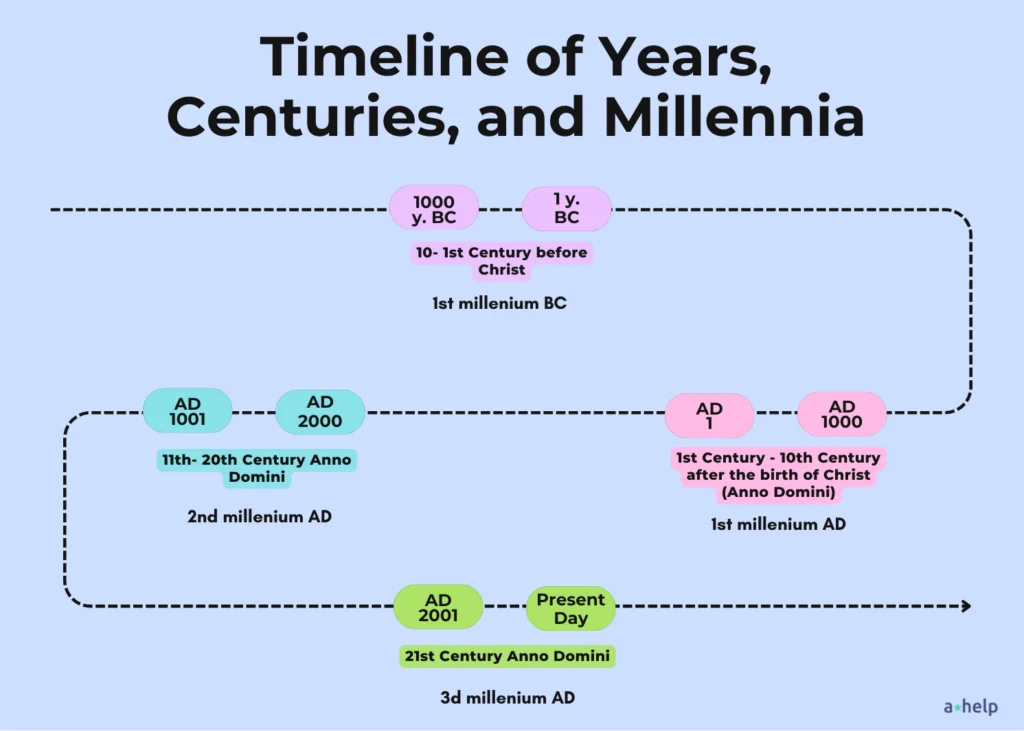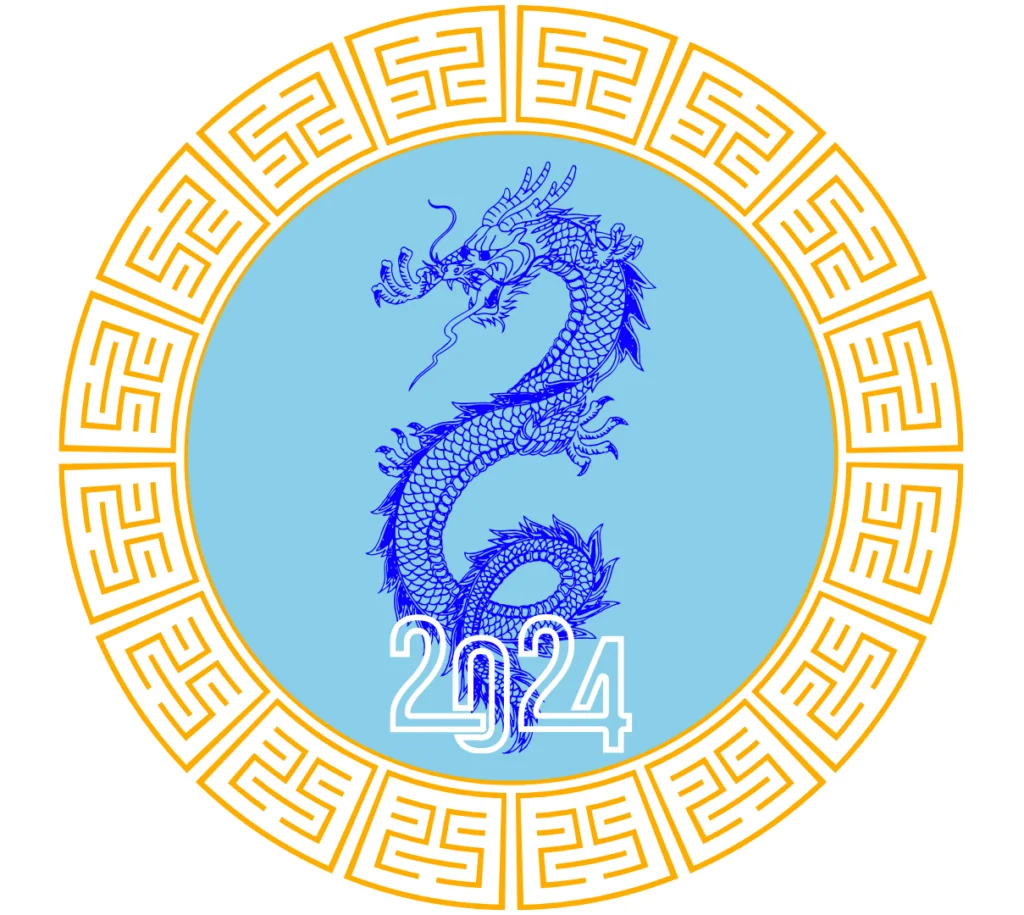The question of what century we are in as of 2024 may seem straightforward, but it opens a fascinating window into the history and structure of our calendar system. Basically, we are still in the 21st century in 2024, but how do we determine that? The way we count years and centuries is deeply rooted in historical decisions, cultural traditions, and astronomical phenomena.

✅ AI Essay Writer ✅ AI Detector ✅ Plagchecker ✅ Paraphraser
✅ Summarizer ✅ Citation Generator
The Issue of Numbering Years and Calendrical Reckoning
Exploring the concept of calendrical reckoning, we need to dig into a narrative that is as much about history and culture as it is about astronomy. The Gregorian calendar, our primary tool for marking time now, was introduced by Pope Gregory XIII in 1582 as a crucial correction to the earlier Julian calendar, which had been in use since 45 BC (before Christ). This modification was not trivial pretentiousness but a response to a significant drift between the calendar year and the solar year. Over centuries, this drift had accumulated to a point where the calendar no longer aligned with the seasons, which was especially problematic for determining the date of Easter, a cornerstone of the Christian liturgical year.
The shift to the Gregorian calendar required a jump forward in the date to realign with the solar year. This meant that countries adopting it had to skip several days in their calendar. For instance, in countries like Italy, Spain, and Portugal, the day after October 4, 1582, was October 15, 1582. This change was gradually adopted by other countries over the following centuries, making the Gregorian calendar a truly global standard.
The foundation of this calendar system, determined by Dionysius Exiguus in the 6th century, was to mark the birth of Jesus Christ as year 1 AD, thus commencing the Anno Domini era. The lack of a year 0 between 1 BC and 1 AD is a quirk that often confuses calendrical calculations. This structure, with its 12-month and leap-year system, owes much to the wisdom of the ancient Romans. Numa Pompilius, the second king of Rome, introduced the months of January and February, while Julius Caesar’s reform in 45 BC established the leap year to correct for the solar year’s length.
The Phenomena of Centuries
When you think of the way we count centuries, you need to think of it as a reflection of the human desire to organize time into manageable, meaningful segments. The division of time into centuries, each spanning 100 years, provides a framework for historians and scholars to categorize events and developments, offering a lens through which we can view the unfolding of human history.

This system, however, often leads to misconceptions, particularly about when a new century begins. Contrary to what might seem intuitive, a century starts with years ending in 01 rather than 00. This misalignment arises from the way the calendar was originally structured, without a year zero, causing each new century and millennium to begin a year later than many might expect. Thus, the 21st century did not start in 2000, a year full of millennial celebrations, but quietly rolled in on January 1, 2001.
In the case of the year 2024, a simple mathematical trick can confirm that it belongs to the 21st century. By adding 1 to the first two digits of 2024 (20+1), we arrive at 21, placing 2024 firmly in the 21st century. This method of calculating centuries, while initially non-intuitive, becomes second nature with a little practice and helps clarify our understanding of the temporal framework within which we live our lives.
The 21st Century and the 3d Millennium
The 21st century and the 3rd millennium are significant milestones in our calendrical system. The 21st century commenced on January 1, 2001, and will conclude on December 31, 2100. Similarly, the 3rd millennium, a period of 2000 years, began in 2001 and will end in the year 3000. These designations are not just numerical markers but represent significant epochs in human history, characterized by rapid technological, social, and cultural changes. Specifically, 2024 is a year within the 21st century, a period marked by remarkable technological advancements and global interconnectedness.
The year 2024 itself holds particular significance. It is part of a leap year cycle in the Gregorian calendar, where an extra day is added to February to synchronize the calendar year with the solar year. While 2024 is not a leap year, it follows the pattern set by the calendar, with 366 days in 2028 and 365 days in other years. This adjustment is crucial to keep our calendar in alignment with Earth’s revolutions around the sun.
The Cultural Aspect – The Year of the Dragon
While the Gregorian calendar is the globally accepted standard, it’s important to recognize that different cultures have their own unique ways of marking time. One such calendar that adds a rich cultural layer to the year 2024 is the Chinese calendar.
Unlike the Gregorian calendar, the Chinese calendar is a lunar calendar, which means it is based on the moon’s phases. In this calendar system, each year is associated with one of the twelve animals of the Chinese zodiac. 2024, in the Chinese calendar, is referred to as the Year of the Dragon. The Chinese zodiac is a deeply rooted part of Chinese culture and has a profound influence on various aspects of life, including astrology, fortune-telling, and even naming conventions. Each animal of the zodiac is believed to impart certain personality traits and characteristics to individuals born in that year. The Dragon is associated with strength, courage, and good fortune, making it a highly auspicious year.

This cultural aspect adds another layer of significance to the year 2024. It demonstrates the diversity of human traditions and how different civilizations have their own unique ways of marking time. For those who follow the Chinese zodiac, 2024 will not only be another year but a Year of the Dragon, filled with cultural significance and symbolism.
Historical Perspectives: Roman Calendar and Dionysius Exiguus
The evolution of our modern calendar is a fascinating journey influenced by historical decisions that have left a lasting impact on how we perceive and measure time. One such historical decision is associated with the Roman calendar, which laid the foundation for many aspects of the Gregorian calendar we use today.
The Roman calendar, initially attributed to Romulus, the legendary founder of Rome, had a lunar structure with ten months, totaling 304 days in a year. The months alternated between 30 and 31 days, with a 61-day gap in winter. This early calendar underwent several revisions, including the introduction of the months January and February by Numa Pompilius, the second king of Rome, around 713 BC. This adjustment realigned the calendar with the solar year, setting the stage for the later Julian and Gregorian calendars.
Julius Caesar’s calendar reform in 45 BC was a pivotal moment in the evolution of our calendar. He introduced the Julian calendar, which established the concept of a leap year to account for the extra 0.25 days in the solar year. This leap year system, with February gaining an extra day every four years, is a feature that continues in the Gregorian calendar. This decision was crucial for keeping the calendar in sync with the seasons.
Dionysius Exiguus, a 6th-century monk and scholar, made another significant historical decision that shaped our calendar system. He introduced the Anno Domini dating system, setting the year of Jesus Christ’s birth as Year One. This designation marked the start of the Christian era and became the foundation for the calendar used in the Western world. Interestingly, this system did not include a year zero, leading to the calendar transition directly from 1 BC to 1 AD.
These historical decisions, made over 2000 years ago, may seem distant, but they continue to influence our lives every day. The structure of our calendar, the months we use, and the way we count years all bear the marks of these ancient choices. As we move through the year 2024 and beyond, it’s a reminder of how history and culture intertwine to shape our understanding of time.
FAQ
Follow us on Reddit for more insights and updates.
Comments (1)
Welcome to A*Help comments!
We’re all about debate and discussion at A*Help.
We value the diverse opinions of users, so you may find points of view that you don’t agree with. And that’s cool. However, there are certain things we’re not OK with: attempts to manipulate our data in any way, for example, or the posting of discriminative, offensive, hateful, or disparaging material.





Thanks great info